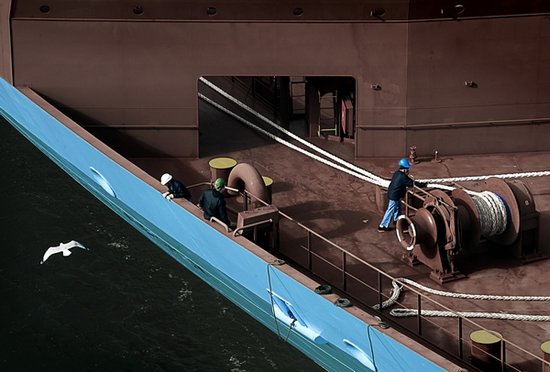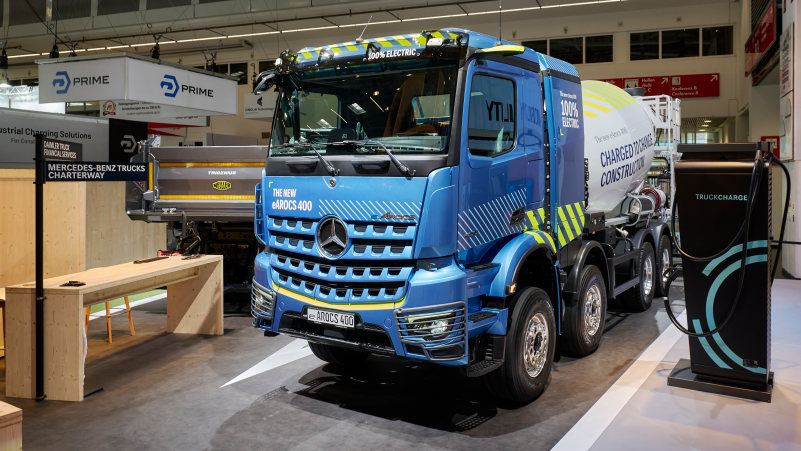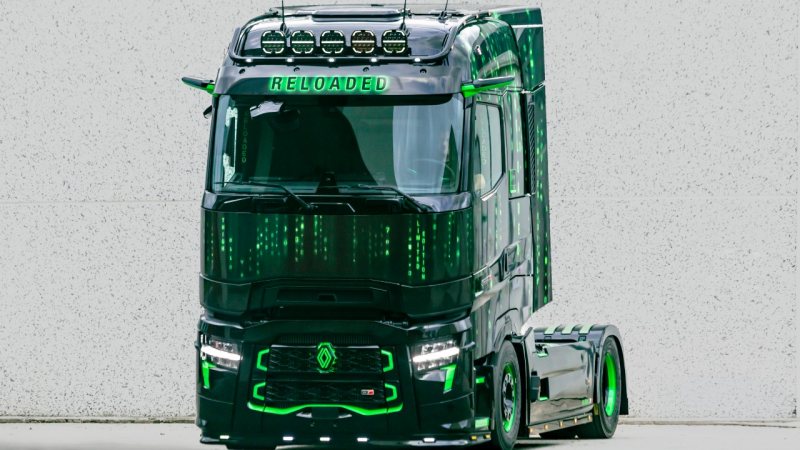Hydrogen at 350 bar for industrial vehicles is on the rise in Germany
For the first time in the history of H2 Mobility, in March 2025 hydrogen dispensed at 350 bar surpassed that at 700 bar, accounting for over 50% of the total. This milestone reflects the growing role of hydrogen in heavy transport, with a 10% increase in sales compared to the same month in 2024. In Germany, more and more companies are using fuel cell trucks, such as the Hyundai Xcient and the PH2P Truck by Paul Nutzfahrzeuge, both also available through flexible leasing models offered by providers like Hylane. Fewer refuelling stops but with larger volumes confirm the expansion of buses and heavy-duty vehicles within the hydrogen ecosystem.
Volvo sells 35 electric trucks to PreZero
Volvo Trucks has received an order for 35 battery-electric trucks from PreZero, an international company active in recycling and waste management. This marks the largest order in the recycling sector in Sweden. The purchase includes 24 Volvo FM Low Entry models, the first to be developed exclusively in an electric version, along with ten Volvo FM Electrics and one Volvo FL Electric. The vehicles, destined for the Stockholm area, will be supported by new charging infrastructure. All trucks will feature Volvo Dynamic Steering and, for the most part, camera-based mirrors to enhance safety.
Optimised logistics can cut emissions by 50%
A study by the Polytechnic University of Milan for Syngenta shows that optimising vehicle loads and relying on intermodal transport can reduce CO2 emissions from road transport by up to 50%. The research, carried out by the Department of Management Engineering, validated the solutions through field trials applied to Syngenta Italia's logistics. More efficient use of vehicles led to a 50% reduction in emissions, while intermodality contributed an additional 22% decrease. The model developed aims to serve as a replicable tool for companies pursuing sustainable logistics.
Russia set to build the Northern Siberian Railway
Moscow has announced that construction of the Northern Siberian Railway will begin by the end of 2025. The new rail link, currently in the design phase, is intended to strengthen freight traffic by rail between the Arctic and China. The project, deemed strategic by the Russian government, will be managed by Russian Railways and aims to improve connectivity in the country's northern regions, contributing to the area's economic development.
Rail ferry between Ukraine and Georgia reactivated
Ukrainian maritime company Ukrferry has resumed maritime rail links between Ukraine and Georgia. In March, at least two journeys were made between the Ukrainian port of Odessa and the Georgian port of Poti. Despite the absence of official announcements at the time, Ukrainian Railways has now confirmed the restoration of the service, encouraging businesses to consider using the ferry route across the Black Sea.
New contract between WFS and Emirates for cargo handling in Frankfurt
Worldwide Flight Services, part of the Sats group, has signed a five-year contract with Emirates SkyCargo for cargo handling at Frankfurt Airport. The agreement strengthens the global partnership between the two companies, already operating at 21 international airports. Frankfurt, a strategic hub for freight traffic in Europe, will see WFS provide specialised services for over 1,400 tonnes of weekly cargo, including pharmaceuticals, vehicles and machinery. Emirates operates six cargo flights and 21 passenger flights per week at the airport.
Cold Chain Technologies launches pharmaceutical transport container
Cold Chain Technologies has unveiled the new CCT Tower Elite, a reusable temperature-controlled container for pallets, at LogiPharma 2025. It is the company’s first innovation in the life sciences sector since acquiring specialist Tower Cold Chain in 2024. The new system offers a 1,600-litre capacity and supports both European and US pallets, making it the lightest in its class. Targeted at pharmaceutical companies, airlines and logistics operators, the CCT Tower Elite delivers cost efficiency and reliability in transporting temperature-sensitive products.
Rail freight on the rise in China
In the first three months of 2025, China’s railway network transported 970 million tonnes of freight, a 3.1% increase compared to the same period last year. According to China State Railway Group, daily freight loads reached 179,000 wagons, up by 4.2%. Cross-border trade also played a significant role: China–Central Asia trains completed 3,582 journeys, a 25.5% rise, while the China–Laos railway handled 1.51 million tonnes of goods, up by 10%.




































































